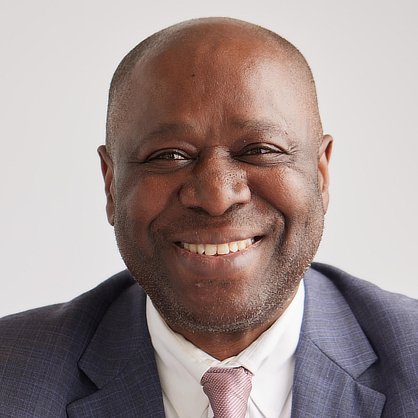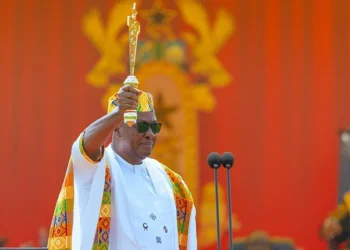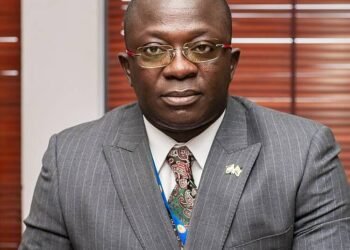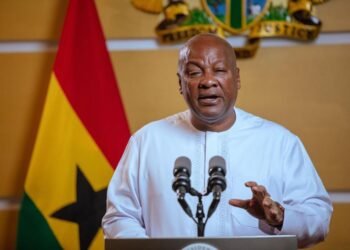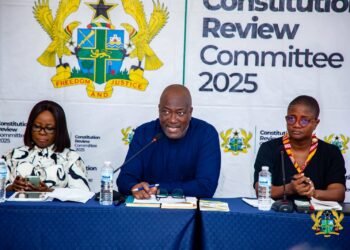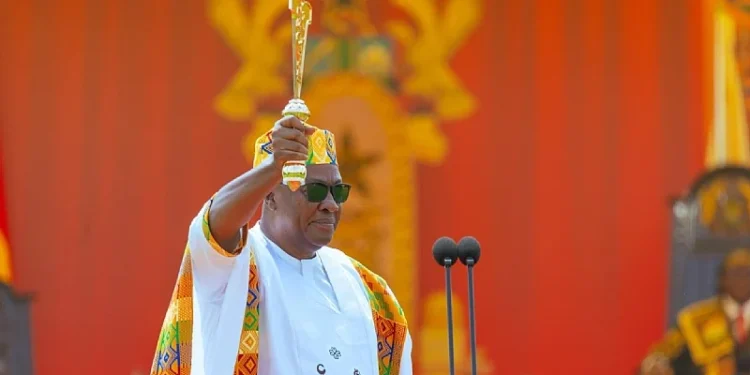Dr. Ohene Aku Kwapong, a Fellow at the Ghana Centre for Democratic Development (CDD-Ghana), has called for sweeping reforms to Ghana’s governance structure, urging the replacement of the National House of Chiefs and the Council of State with what he terms a “Senior House.”
In his view, the challenges facing the country—including illegal mining (galamsey), poor road maintenance, and the prevalence of abandoned projects—stem largely from weaknesses in local administration and ambiguities in the nation’s institutional framework.
“If we can close that local gap and push administrative powers down, define the minimum amenities for our villages and towns, AND simplify overall governance, the country will improve its capacity to address a lot of the consistent headaches we all see around”.
Dr. Ohene Aku Kwapong
By simplifying governance, he maintained, Ghana could significantly enhance its capacity to address the persistent problems citizens encounter daily. At the center of his proposal is the establishment of a Senior House, a body that would serve as Ghana’s principal revising and advisory institution.
Unlike the National House of Chiefs, which he described as largely ceremonial, or the Council of State, which has often been criticized for ineffectiveness, the Senior House would be designed to strengthen legislation, support long-term national planning, and ensure equitable development through evidence-based oversight.
Composition of the Senior House
The composition of the Senior House would bring together three categories of members. The first would include Senior Traditional Leaders—paramount chiefs and queen mothers with decades of experience in governance, conflict resolution, and community development.
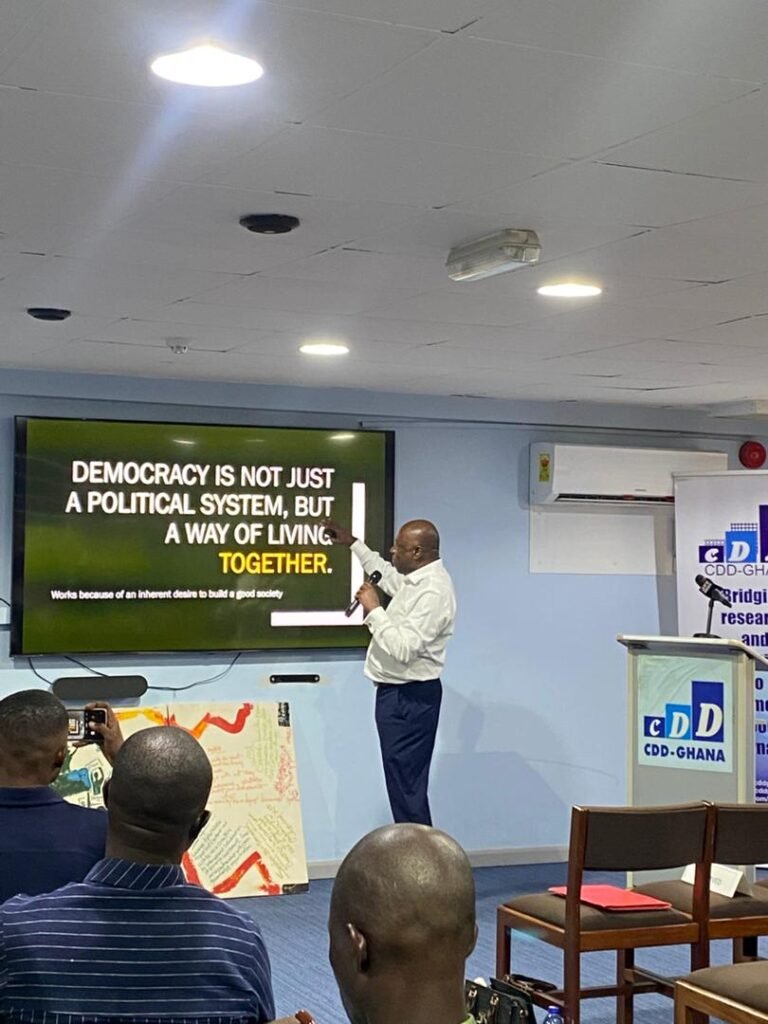
According to Dr. Kwapong, their grassroots knowledge is invaluable for promoting social cohesion and ensuring that policies reflect realities on the ground. He illustrated this by pointing to a hypothetical Paramount Chief from the Upper East Region with 25 years of rural development experience who could offer practical advice on agricultural policy.
The second group would be National Experts—20 distinguished professionals drawn from critical sectors such as economics, law, healthcare, engineering, and environmental science.
These experts would be appointed by an independent Senior House Appointments Commission composed of leaders from civil society, academia, and industry. Their role would be to provide technical input into policymaking and legislation.
For instance, Dr. Kwapong suggested that a retired Supreme Court judge could play a crucial role in judicial reforms, while a renewable energy expert could guide the design of Ghana’s solar grid expansion.
The third category would consist of Regional Representatives—16 in all, with one drawn from each region. These members, elected by their regional assemblies, would be chosen for their proven track record in public service, whether as former mayors, NGO directors, or educators.
According to him, their mandate would be to advocate for region-specific priorities, ensuring balanced development. For example, a representative from the Northern Region could champion irrigation initiatives, while one from the Western Region could push for investment in port infrastructure.
Functions of the Senior House
Collectively, the Senior House would number about 56 members, though Dr. Kwapong indicated the size could be adjusted to suit national needs. In terms of its functions, the Senior House would play a pivotal role in shaping policy and governance.
It would review bills passed by Parliament, proposing amendments to improve their feasibility, equity, and sustainability. It would also have the authority to draft new legislation to address complex national challenges, such as universal healthcare access or regulating artificial intelligence.
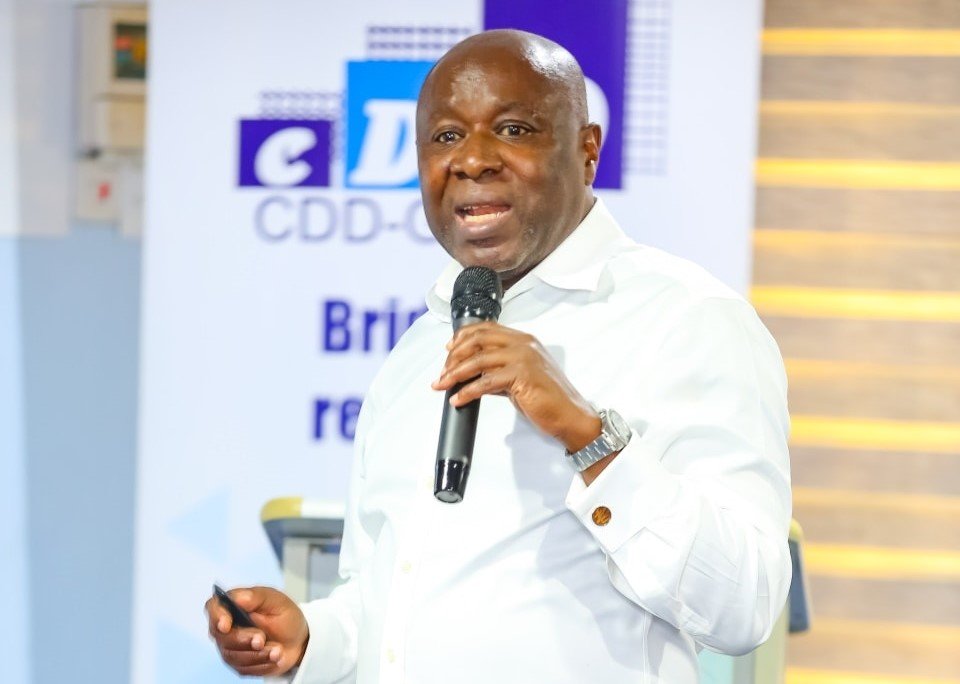
Another key role would be monitoring major infrastructure projects—such as highways, power dams, and public housing—to curb corruption and prevent delays. In addition, the Senior House would serve as a crisis advisory body to the President, offering guidance during emergencies such as pandemics or natural disasters
Non-Renewable Terms
To ensure accountability, Dr. Kwapong recommended fixed, non-renewable terms for most categories of members. Senior Traditional Leaders would serve for 10 years, National Experts for 8 years, and Regional Representatives for 6 years—renewable once but subject to recall by their regional assemblies.
This, he noted, would balance continuity with renewal and prevent entrenchment. The Senior House, in his design, would work in tandem with both local and national governance structures.
At the grassroots level, new administrative roles such as Village Managers, Town Managers, and Mayors would be introduced to implement policies, while District Assemblies would be revamped to serve as coordinating units.
Regional Ministers appointed by the President would act as the link between local leaders and the Senior House, ensuring that local challenges feed directly into national advisory processes.
At the national level, Parliament would remain the primary lawmaking body, controlling budgets and exercising oversight of the executive. Members of Parliament would continue to answer to their constituents, while members of the Senior House would be accountable to the President and their regional mandates.
In this arrangement, the Senior House would not displace Parliament but complement it, ensuring that policies and laws are not only politically feasible but also technically sound and regionally relevant.
Varying Benefits
The anticipated benefits of such a system, Dr. Kwapong explained, are manifold. First, it would merge technical expertise, grassroots wisdom, and regional pragmatism in one body. Second, it would protect vital national policies—such as infrastructure development plans—from being derailed by short-term political cycles.
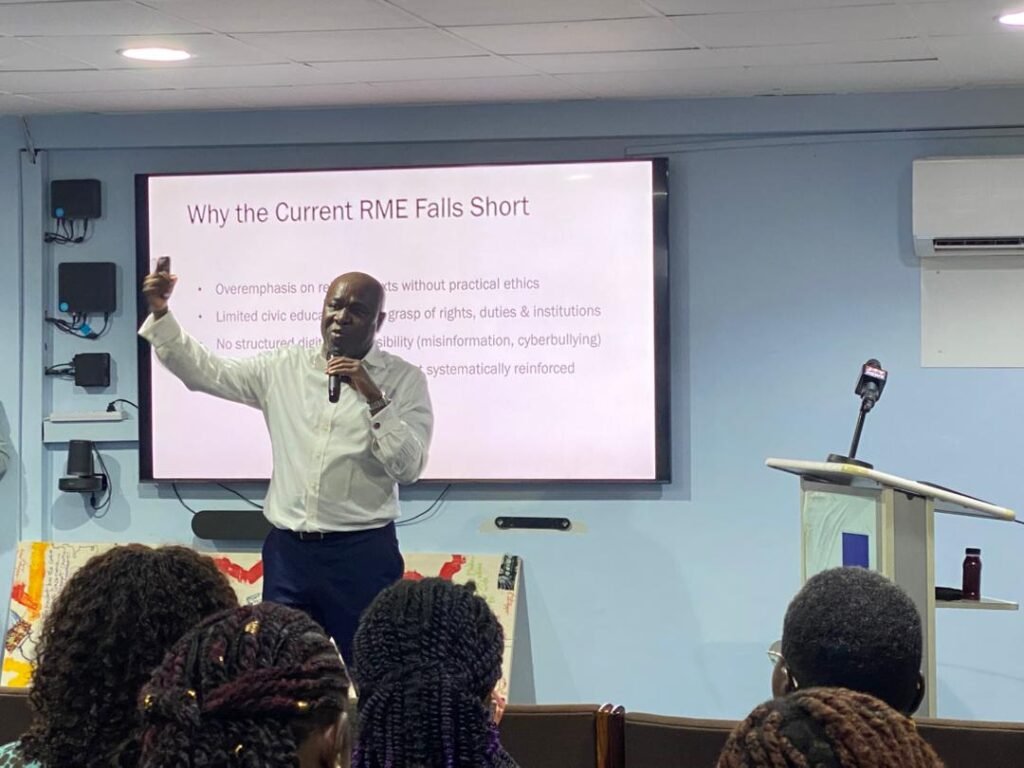
And third, it would ensure a balance between urban and rural needs, as well as modern and traditional perspectives, fostering a more inclusive and sustainable national development agenda.
In proposing the Senior House, Dr. Kwapong is advancing a vision of governance that simplifies Ghana’s institutional framework while simultaneously enhancing its effectiveness.
By combining tradition, expertise, and regional representation, the body would aim to address the inefficiencies and ambiguities that have long hindered Ghana’s ability to resolve pressing national problems.
For him, the Senior House represents not just another advisory body but a transformative step toward a governance system capable of meeting the demands of a growing and complex nation.
READ ALSO: Ghana Deepens Energy Talks with Chevron at African Energy Week

